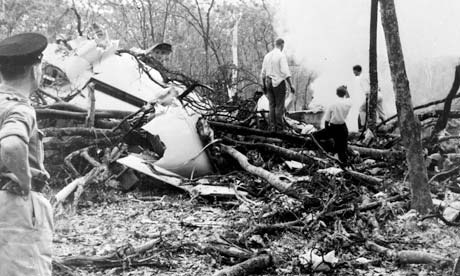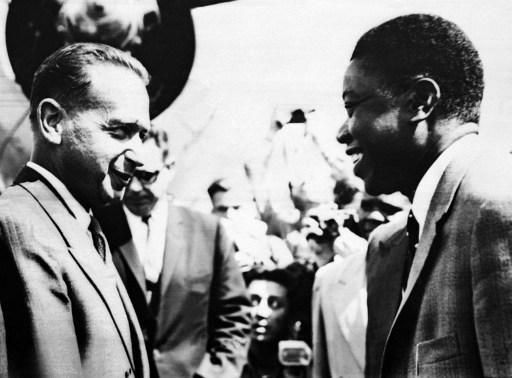The UN General Assembly on Friday adopted a resolution extending the international investigation into the mysterious death of the Swedish secretary-general Dag Hammarskjöld in 1961 in Africa, until 2021.
The adoption was made by consensus without a vote on the text initiated by Sweden and co-sponsored by more than a hundred countries.
Sweden recommended the reappointment of Tanzanian lawyer Mohamed Chande Othman who has been conducting the investigation for several years. In his latest report, published in early October, he criticized the United States and the United Kingdom in particular, for not sharing their information on the death of Hammarskjöld.
The second secretary general in the United Nations history was killed with 15 people on September 18, 1961 when their DC-6 plane crashed near Ndola, in Northern Rhodesia, present-day Zambia.
Dag Hammarskjöld at the time sought to avoid a breakaway of the Katanga province in Congo rich in minerals which was seeking independence.

The death of UN Secretary-General Dag Hammarskjöld has been one of the most important cold cases in the world for 58 years.
Investigations concluded that there was a pilot error, but in 2014 new investigations redirected research towards the possibility of an attack by another plane, a hypothesis relayed in the last report by Mohamed Othman.
His report thanks several countries (France, Belgium, Sweden and Zimbabwe) for their contributions to the survey. The Tanzanian jurist, on the other hand, deplores having received no return to his questions from the US, South African and United Kingdom.
"South Africa, the United Kingdom and the United States are most likely to have important undisclosed information," Othman said.
The resolution urges in this regard "member states, and in particular those cited in the report, to provide all useful records in their possession."
In his report, the Tanzanian lawyer mentions the probable existence of communication interceptions by UN member states and of Katangese air defence which could have enabled an attack against Hammarskjöld's plane.
He also cites the presence of foreign paramilitaries, pilots and intelligence agents at the time of the plane's crash on the ground.
The Brussels Times

